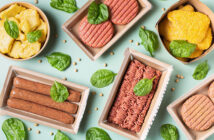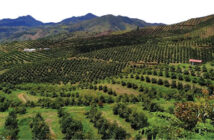By Carol Barnao
The prospect of having irradiated tomatoes and capsicums available on New Zealand shop shelves has received media coverage recently. It is important to note, while irradiation of food may be a novel concept to some people, it is a technology that has been around for a long time. There are rules in place to ensure it’s used safely and that consumers can choose whether or not to eat irradiated products.
Decades of research conducted worldwide has shown that irradiating food is a safe and effective alternative to the chemical treatment of food, and this treatment method is used in more than 50 countries around the world.
It’s important for consumers to understand that irradiated food does not become radioactive: The energy source used to irradiate foods does not have the ability to make the food radioactive. What’s more, the food does not come into direct contact with the ionising irradiation, which makes it impossible for the food to become contaminated with any radioactive material.
Irradiation works by exposing foods to a source of ionising energy or radiation in order to kill potentially illness-causing pathogens in food, extend the shelf life of food by eliminating moulds and spores that cause spoilage, or mitigate biosecurity hazards on imported foods – like the unwanted fruit fly. Where foods have been irradiated the Australia New Zealand Food Standards Code (the Code) requires these foods to carry a label so consumers can choose if they want to eat irradiated foods. For items such as fruit that do not carry labels, a statement must be displayed with the food to say it has been treated with ionising radiation.
Under the Code there are already a number of foods that can be irradiated. It currently permits the irradiation of herbs, spices, herbal infusions, selected tropical fruits and persimmons. Under our food laws, irradiation can be used to treat specific foods only after Food Standards Australia New Zealand (FSANZ) has conducted a safety assessment. FSANZ only approves irradiation where it concludes this treatment would be safe and would not impact nutrient levels any more than other pest control and food safety treatments.
Earlier this year FSANZ decided that it would be safe to allow irradiation of tomatoes and capsicums. Subsequently food regulation ministers on both sides of the Tasman – including our Food Safety Minister Nikki Kaye – last month approved the decision made by FSANZ.
However, New Zealand consumers are unlikely to notice an immediate change despite the new rules as there are still a few steps to go through before irradiated tomatoes or capsicums might land on our shop shelves.
This is because New Zealand currently has no irradiation facilities approved for food use, so no domestic product would be irradiated subsequent to a change to the Code, and we currently have no provision in the Import Health Standards for tomatoes or capsicums imported from Australia that would allow the importation of irradiated product.
To allow irradiated tomatoes or capsicums to be imported from Australia, MPI has to amend the current import health standards. Our staff are currently working on amendments to the rules – which includes public consultation – before they could be implemented.
If the amended standards are put in place, irradiated tomatoes and capsicums from Australia could be freely imported. Imported product would still have to comply with the Code’s irradiation labelling requirement.
Information about irradiated food will be added to MPI’s website at www.foodsafety.govt.nz
Carol Barnao is a NZ FOODtechnology content partner and deputy director-general of the Ministry for Primary Industries’ Standards branch. Before this, she was NZFSA director of the Assurances and Standards Group which provided assurances that New Zealand food and related products are safe and suitable to eat. Carol has a strong background in the dairy industry. Before joining MAF 12 years ago, she was for 18 years involved in the dairy industry. She has held various positions with the New Zealand Dairy Board. She is a food technologist and a fellow of the New Zealand Institute of Food Science and Technology. If you have questions for Ms Barnao or suggestions on areas of interest in her specialist area, email editor Steve Best at [email protected], reference Carol Barnao.





























































































